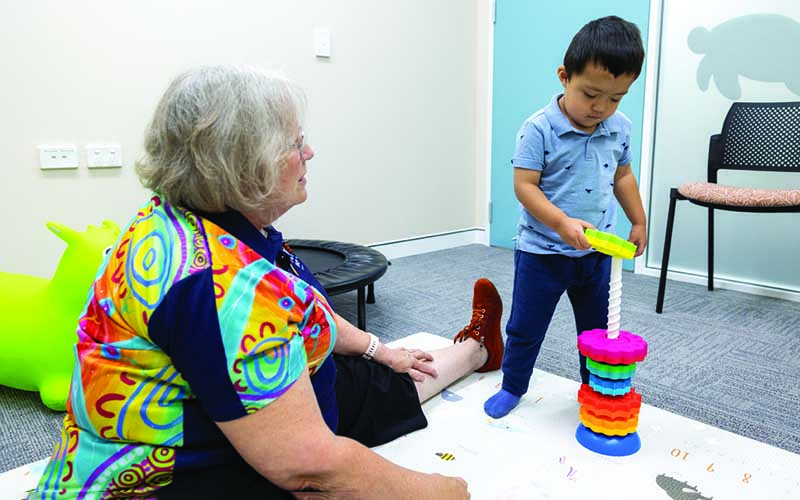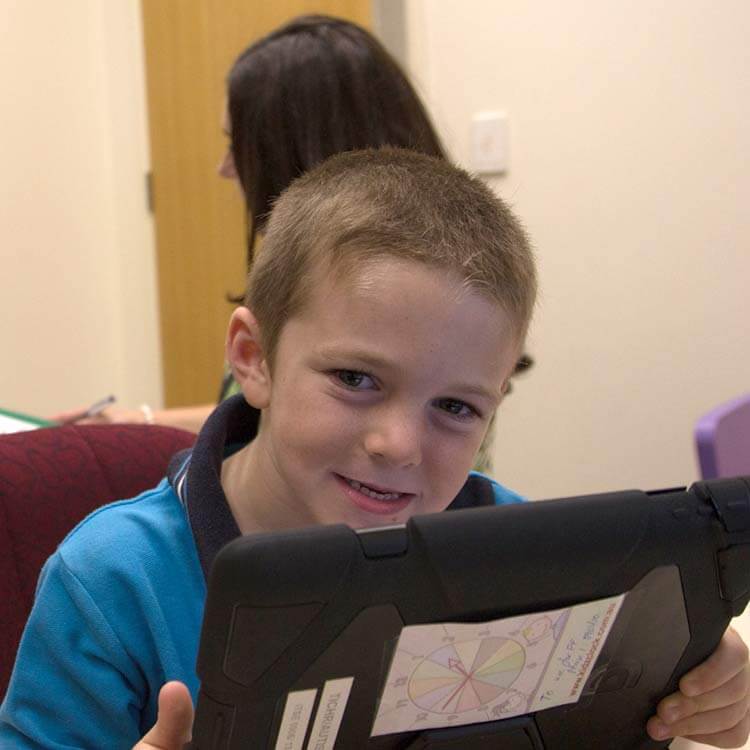Search
Research
Functioning, participation, and quality of life in children with intellectual disability: an observational studyTo investigate associations between functioning, community participation, and quality of life (QoL) and identify whether participation mediates the effects of functioning on QoL.
Research
Subgroups of Temperament Associated with Social-Emotional Difficulties in Infants with Early Signs of AutismLinks between temperament and social-emotional difficulties are well-established in normative child development but remain poorly characterized in autism. We sought to characterize distinct temperament subgroups and their associations with concurrent internalizing and externalizing symptoms in a sample of 103 infants showing early signs of autism.

Discover how this family is benefitting from CliniKids' evidence-based therapies.

Research
Multigenerational Familial and Environmental Risk for Autism (MINERvA) NetworkThe MINERvA Network will allow more accurate and precise determination of the contributions of familial and environmental factors to the etiology of autism.
Research
Characterizing Transdiagnostic Processes Underlying the Drive to Socially Engage: A Multimeasurement Factor Analytic InvestigationAltered drive to socially engage is a transdiagnostic feature across multiple psychopathologies. Yet, lack of clarity regarding specific processes that constitute social drive, along with insufficient measurement methods, has hindered understanding in this area. This study ascertained the feasibility of approximating difficulties within specific fine-grained social drive processes as proposed by 2 theoretical frameworks: “orienting,” “wanting,” “pursuing,” “liking,” “learning,” and “reticence” within a reward processing framework and “orienting,” “seeking and maintaining,” and “liking” within a social motivation framework.
Research
Plasma Metabolite Profiles of Children with Autism Spectrum DisorderAutism spectrum disorder (ASD), a neurodevelopmental condition characterised by social and communication differences, is complex and aetiologically heterogeneous. Untargeted metabolomics is emerging as a tool in screening for biochemical abnormalities. This research was conducted using the Australian Autism Biobank resource and involved analysis of plasma metabolites to characterise metabolite differences between autistic children and controls.
Research
“I Just Feel Like the Teacher Understood Me, and She Knew What I Needed”: School Experiences of Autistic Students from Diverse BackgroundsGathering Autistic young people's testimony is critical for understanding their lived experience of education and designing settings in which these students can thrive. Despite increasing knowledge in this field, we lack perspectives from a broad range of Autistic students which necessarily limits our ability to build inclusive, supportive environments for all. This study explored the educational experiences of preschool and school-aged Autistic students from diverse age groups, backgrounds, and educational settings.
Research
Characterizing the Nature of Alexithymia in Autistic Adults: Validation of the Perth Alexithymia QuestionnaireAlexithymia—a trait characterized by difficulties in emotion processing—is of high interest in the autism field. However, the lack of validated alexithymia measures for autistic individuals limits progress. This study aimed to address this gap by examining the psychometric properties of the Perth Alexithymia Questionnaire (PAQ) across autistic and non-autistic samples. Using the PAQ, we investigated how alexithymia manifests in autistic individuals and its links with poor mental health outcomes (anxiety).
Research
“We Need Community-Centred, Strongly Ethical Genetic Research”: A Qualitative Investigation of Community Attitudes Toward Autism GeneticsAutism genetics has historically attracted a substantial proportion of autism research funding internationally. However, more recently, several controversies centered on ethical conduct and lack of community consultation have emerged. This has triggered Autistic-led protests for the functional and meaningful inclusion of Autistic voices in the research design.
Research
Evaluation of the Acceptability and Feasibility of the Social Attention and Communication Surveillance-Revised (SACS-R) Tool for Early Identification of Autism in Preterm InfantsPreterm birth is associated with a 3.3-fold increased likelihood of autism diagnosis, with lower gestational age conferring higher likelihood. In Australia, autism is typically diagnosed at around age four, potentially missing the optimal neuroplasticity window before age two. The Social Attention and Communication Surveillance-Revised (SACS-R) tool identifies early autism signs in children aged 11-30 months, enabling pre-emptive intervention.
